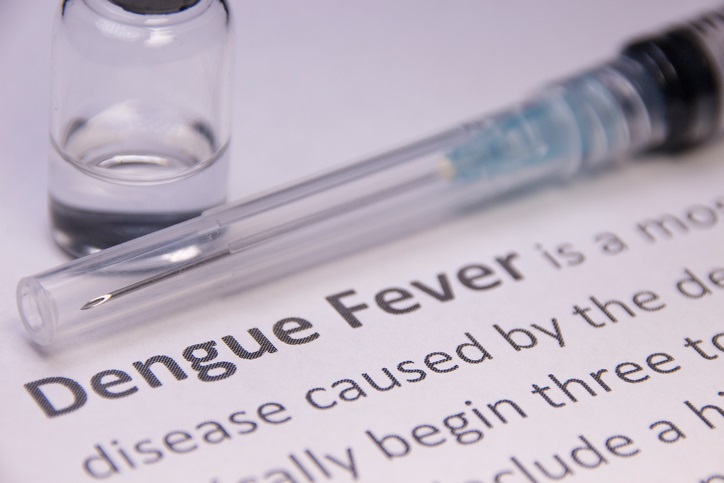Dengue fever is a mosquito-borne illness that tends to be less publicized in the United States, but according to the CDC, the dengue virus is a leading cause of illness and death in the tropics and subtropics. There are currently no vaccines to prevent infection with the dengue virus, which makes education about the disease and corresponding prevention strategies vital. We spoke with our Chief Medical Officer, Dr. William Siegart, to learn more about dengue fever and how you can help your travelers stay safe and healthy when traveling to areas affected by the disease.

What is dengue fever and how is it transmitted?
Dengue fever is a mosquito-borne virus that is transmitted by the bite of infected Aedes aegypti and Aedes albopictus mosquitos.
Where is the virus found?
Dengue is active in more than 100 countries and is mostly found in tropical and subtropical areas such as Mexico, Brazil, Cuba, Ecuador and Nigeria. The WHO estimates there are 390 million cases of dengue fever worldwide per year.
What are the symptoms of dengue fever?
- Severe pain behind the eyes
- Headache
- Joint pain
- Rash
- Low white cell count
- Muscle pain
- Mild bleeding (nose or gum bleed) or easy bruising
When will symptoms appear?
Symptoms typically appear four to ten days after the bite of an infected mosquito. In mild cases, some people may not experience any symptoms at all.
Who is at risk for the virus?
Anyone who travels to an affected country could be at risk. However, those under the age of 12, females, and those with a weakened immune system are at a higher risk – specifically for complications.
Is the virus contagious?
No, dengue fever is spread by mosquito bites and cannot be spread from person to person.
How is the virus diagnosed?
A series of simple blood tests can be used to determine if the virus is present.
What is the treatment for dengue fever?
There is no specific treatment for dengue fever at this time, but individuals who believe they could be infected should visit a physician so they can be monitored until symptoms improve. Fluids and rest are best until symptoms subside. Treatment is largely supportive, and medication may be administrated to aid in fever reduction and pain relief.
Can complications arise from dengue fever?
Yes, there is a rare chance of developing dengue hemorrhagic fever (DHF), a more severe form of the virus.
What are the symptoms of DHF?
Symptoms are similar to dengue fever, but a person could also begin to experience irritability, sweatiness, and restlessness. Individuals who believe they have contracted DHF should consult a physician immediately.
Is DHF fatal?
Dengue hemorrhagic fever can be fatal if not diagnosed properly and treated in a timely manner. If a diagnosis is made early enough, the condition can often be controlled. DHF usually requires hospitalization and can be treated with fluid replacement therapy.
How can travelers protect themselves against dengue fever?
There is currently no vaccine available, so the best way to reduce the risk of contracting dengue (and any mosquito-borne illness) is to wear repellant that contains DEET (25-35% concentration), Picardin (20%), oil of lemon eucalyptus, or IR3535. Permethrin is an additional insect repellant that can be applied to clothing, footwear, mosquito nets and tents, but not directly onto bare skin. Keep skin covered with long-sleeved shirts and long pants and sleep in screened-in or air conditioned rooms. If possible, limit the amount of outdoor activities, especially between the hours of dawn until dusk, when the Aedes mosquito is most active.
What should travelers do if they suspect they have contracted dengue fever while they’re away?
If someone is traveling and begins to feel ill, they should not wait for symptoms to worsen. They should seek medical care as soon as possible.
Want to find out how you can give your travelers access to worldwide medical referrals and a nurse helpline, 24 hours a day, 365 days a year? For more information on travel health and holistic risk management, contact us today.
Safe Travels!


